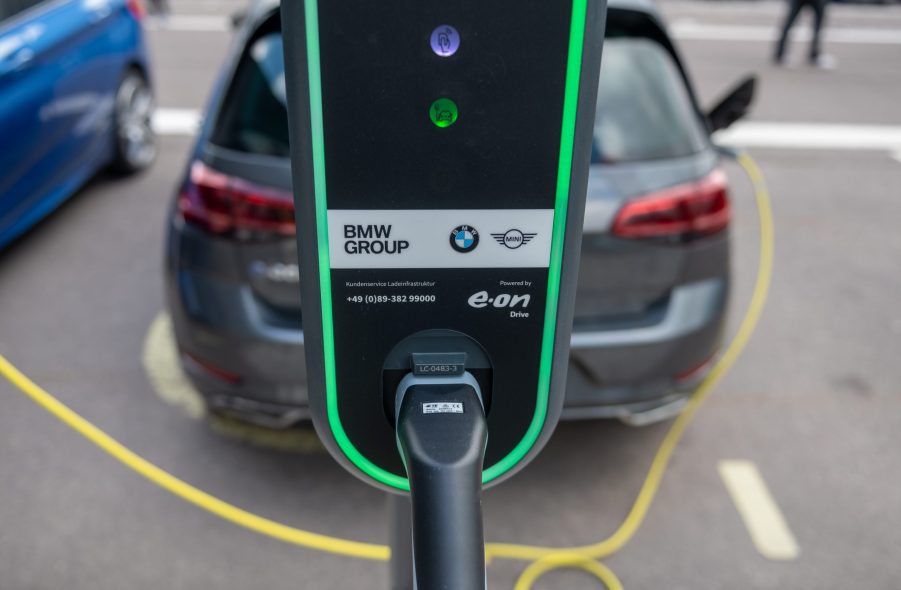
BMW Seeks Electric Range Anxiety Solution With New Battery Tech Venture
With instant torque and inherent simplicity, electric powertrains have some clear advantages over internal combustion. However, driving range is not one of them, yet. The short battery life in current EV models is compounded by a lack of charging infrastructure in many areas. For automakers like BMW, looking to sell their latest electric vehicles to the masses, range anxiety is a big problem.
What is range anxiety?

Let’s say you’ve just purchased a shiny new electric vehicle, and happen to have everything set up to charge at your home. But you need to drive to a destination hundreds of miles away, maybe for work or a family trip. You do some research on charging opportunities along the way. They are few and far between. Can you make it?
Assuming you do reach the stations, here’s another possible scenario. Due to the limited number of chargers, you could end up waiting just to hook up. And you’ll definitely have to wait some more while the battery replenishes. You’re on a tight schedule. How would you feel about making that trip? That’s range anxiety, in a nutshell.
To be fair, it’s certainly possible to run out of gas or diesel in a remote area, especially with a heavy right foot. But as a society, we’ve had decades to grow accustomed to and build out infrastructure for fossil fuels. The same can’t be said for recharging electric vehicles at this point. And even if adequate charging infrastructure existed, some buyers would still be nervous, just because it’s something new. That’s human nature, generally speaking.
What is BMW doing about it?

BMW is launching a new battery research project to improve the range of its electric vehicles. Through the Advanced Propulsion Centre (APC) competition, the UK government and industry partners recently awarded a grant of $36 million to the endeavor. Known as BMW-UK-BEV, it was one of four projects to receive funding through the program.
“These projects tackle some really important challenges in the journey to net-zero road transport,” said Ian Constance, CEO of APC. “They address range anxiety and cost, which can be a barrier to people making the switch to electric vehicles and they also provide potential solutions to the challenge of how we decarbonize public transport and the movement of goods.”
Improved battery range could benefit racing in the future

Aside from potentially addressing range anxiety for production cars, battery tech is also important to electric motorsports going forward. While the company is reportedly leaving Formula E after 2021, the new project did apparently catch the interest of BMW Motorsport, nonetheless.
“This is a really exciting opportunity to collaborate with world-leading companies to develop high-tech battery technology,” said Andreas Löhrke, head of R&D at BMW Motorsport. “It strengthens our UK partner base and safeguards and extends our research and design centre.”
Regardless, if BMW succeeds in developing an affordable battery solution that matches the range we’re used to, it could be a game-changer. Until charging infrastructure can be put in place on a massive scale, increasing range is a vital piece of the electric car puzzle.
RELATED: Audi Testing for Dakar Rally With RS Q e-tron Electric Hybrid


